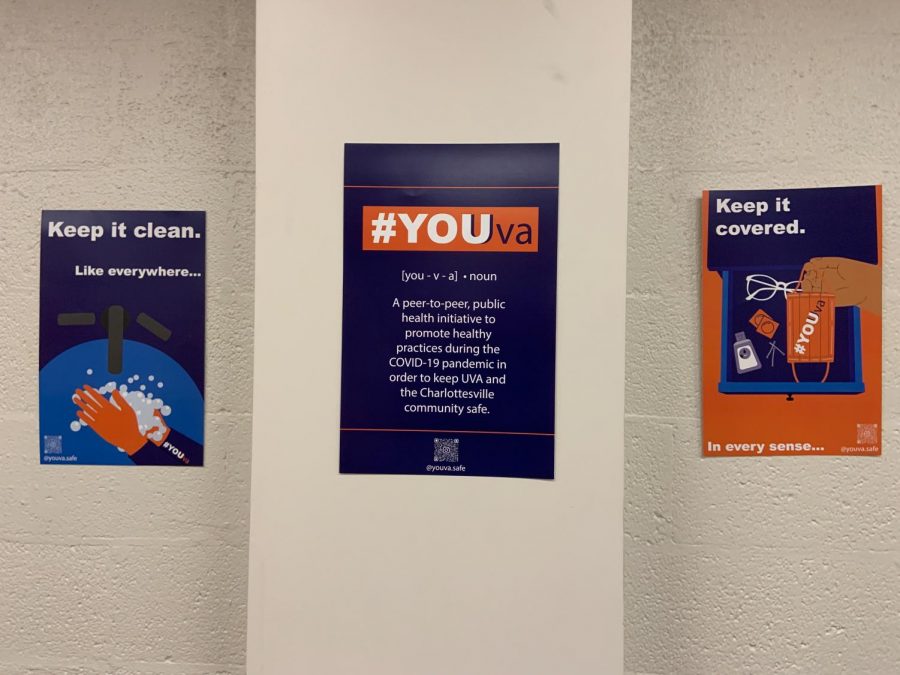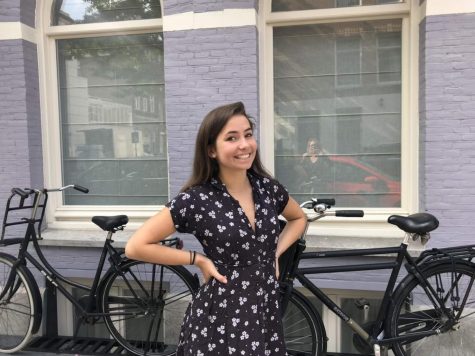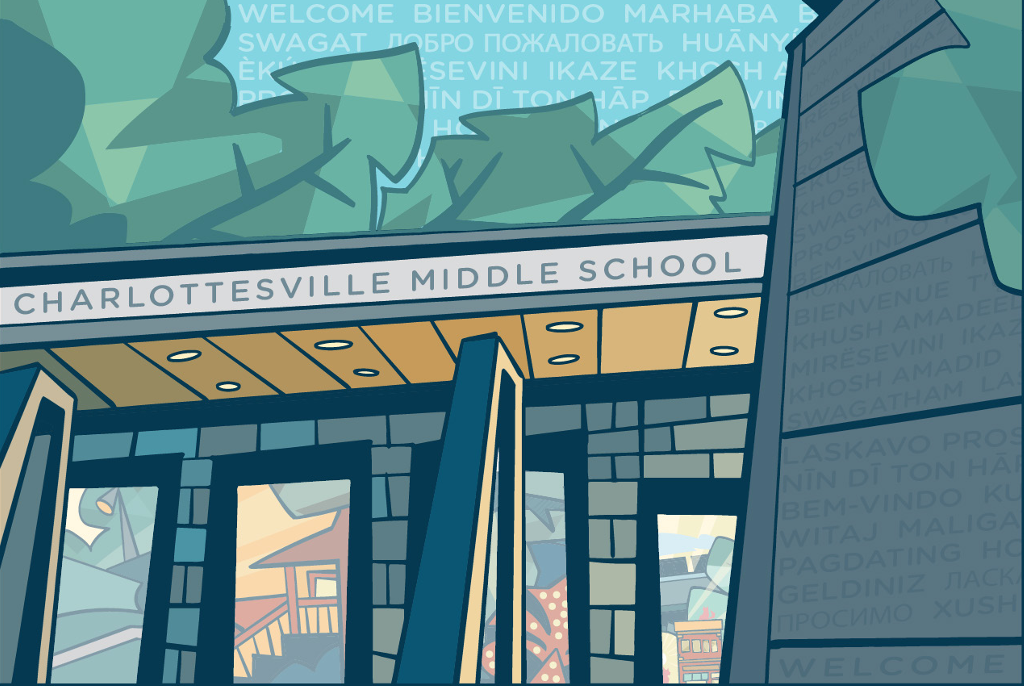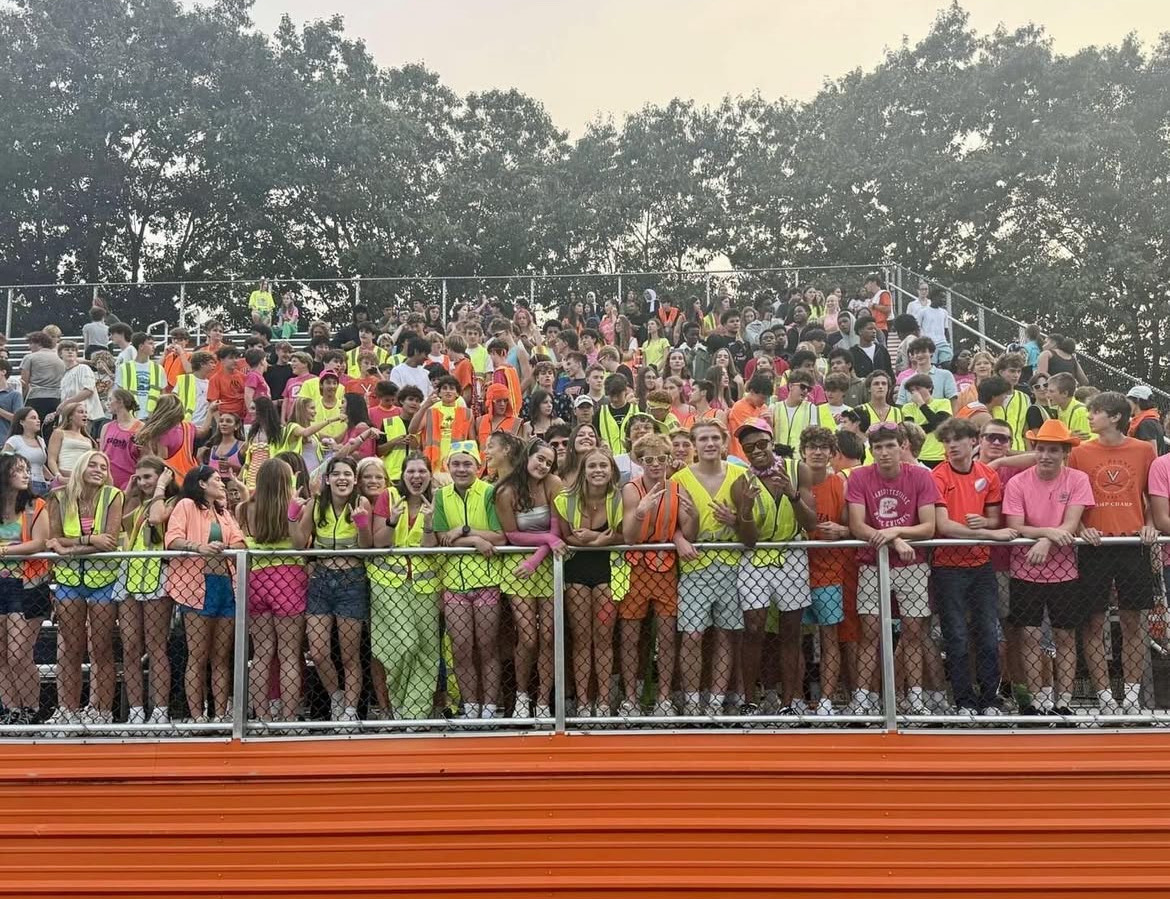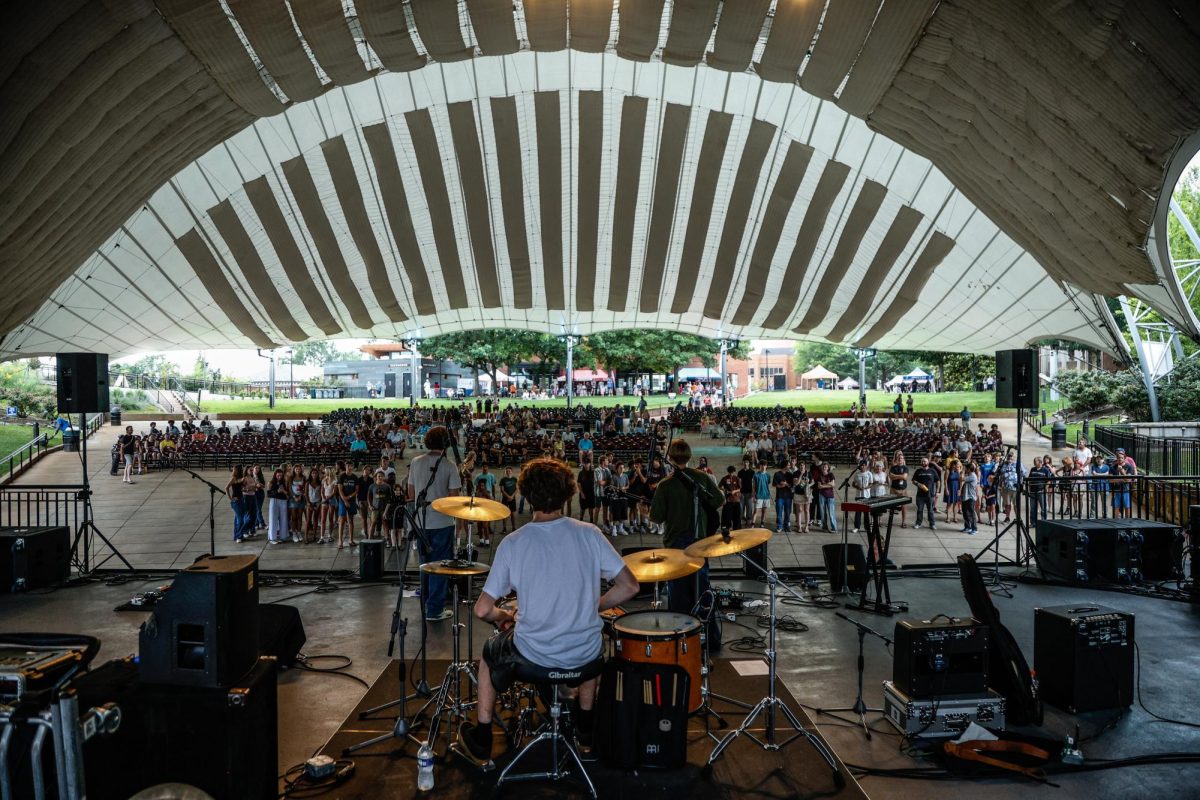Should Seniors Be Worried About College During Coronavirus?
We take a look at how college applications and admissions are different during the Pandemic, and talk the U.Va. Dean of Admissions about what this means for this years graduating class.
Signs at the University of Virginia to promote a healthy, Covid-friendly environment.
October 21, 2020
Students have begun to return to college campuses and high school classrooms, adjusting to the new ways of Zoom-learning and Covid-cautious environments. But many have started to wonder what lasting consequences the pandemic may have on higher education and, specifically, how this year’s graduating class is affected.
While some believed the sudden brevity of the last academic year was the only effect on their education that they would experience due to the Coronavirus, many began to realize that there was a likely possibility this would be the new reality for the foreseeable future and would surely influence students’ future choices for college and beyond.
According to a survey of 105 Charlottesville High School students, many are considering the impacts of Coronavirus on their post-graduation plans, since no one can feel sure about what is in store for the coming months. About 44% of students are worried about their chances of getting into college due to Coronavirus, and 56% of students are considering Coronavirus when preparing for college right now.
As students began to realize what their academic future looked like in a world of Coronavirus, with majority online classes and stricter regulations on student life, many started shifting their goals. Some students have chosen to postpone the beginning of their college education for the year to explore other opportunities. Ed Aten, Charlottesville High School Class of 2020, was planning on attending the University of Virginia as a first-year student. However, over the summer, he decided to defer to instead hike the Appalachian Trail.
“I chose to defer because I knew that most schools including U.Va. were struggling with a COVID response that would protect the staff and students and provide an experience like what most of us hope for when we imagine college,” Ed said. “I figured that now would be the perfect time to take a gap year and focus on growing in some non-academic areas.”
This is a pattern that many colleges are seeing for this school year, so it could be assumed that the number of students that would be admitted for the following year would be lower. Gregory Roberts, the Dean of Admissions at U.Va., spoke on this during a phone interview.
“While we did see more students who elected to take a gap year, it’s still a relatively small number,” Roberts explained, providing that while the number of students accepted to the class of 2026 who decided to take a gap year is twice as many as previous years, it’s still a tiny fraction of the total number of students admitted in a year, so it will have little effect on this year’s applying class.
“With that said, it is very-school dependent. Some schools, for example, are purely online for this semester, while [U.Va.] has students back,” Roberts continued. “The schools that are purely online might see a larger number of students who request a gap year. It’s quite possible that they might have a larger class next year to compensate, but it’s hard to say.”
Additionally, seniors are struggling with determining how their applications might be considered by colleges. C.H.S., unlike other schools in the area, decided to give everyone A’s as passing grades, or F’s as failing ones in the Spring, which is a crucial grading period for this year’s Seniors. This grading method makes it difficult for schools to truly assess how students performed compared to their peers. Students this year will also have to consider how they compare with students from other schools, who may have performed differently academically because of how their school chose to conduct classes: either in person, online, or a combination.
Standardized testing has also changed because of Coronavirus. Most standardized testing dates were canceled in the Spring when many now-Senior students were planning on taking the SAT or ACT. There are now fewer testing sites, as well as less available seats for each test. Because of this, some students might not be able to include a standardized test score on their application, making it more difficult for schools to distinguish between applicants. Some schools are also questioning the validity of AP scores due to the changed format from last year, and AP curriculums might also vary this year between schools, making yet another benchmark usually used for judging applications questionable.
On top of the uncertainty around grades and test scores, students have fewer opportunities for extracurriculars and additional prerequisites to put on their applications, as many sports and clubs are canceled or not in-person. Combining all of these factors makes the application process much more stressful this year compared to other years, which can be expected in such uncertain times.
“The question we get the most is how are we going to evaluate applications,” Roberts said. “I would just reassure people that our job is to try to get to know students academically and personally through their application, and that hasn’t changed. What they’re going to present has changed — what their opportunities were, what their academic experience has been like.”
Roberts explained, however, that admission offices will be able to get that information from the student and schools about what their academic environment was like due to Coronavirus, and students will only really be compared to other students within their school.
While admission offices seem to have a plan to continue mostly per usual with this year’s round of college applications, that doesn’t mean the experience of applying to college during a pandemic is any less stressful or strange. Hang in there, seniors! You got this.


